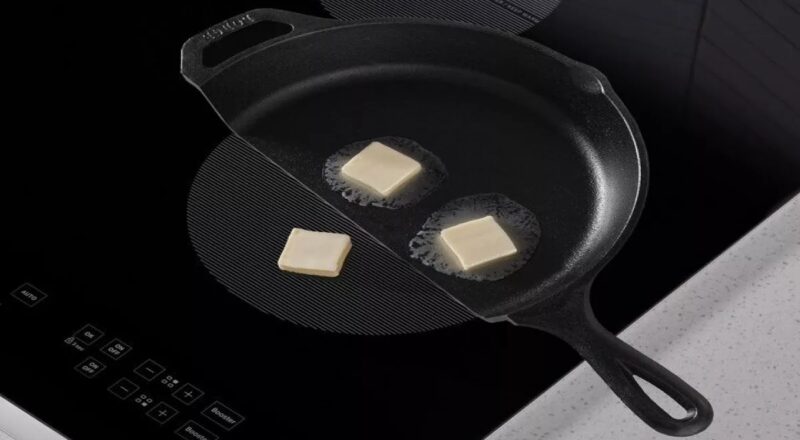As technology continues to advance, the kitchen is no exception. One of the most significant innovations in recent years is the induction cooking method. Many home cooks and professional chefs are exploring this modern cooking technique due to its efficiency and safety. However, a common question arises: Can you use your beloved traditional pans on an induction cooktop? In this article, we will delve into the fascinating world of induction cooking with traditional pans, providing insightful information and practical tips for anyone looking to embrace this cooking innovation.

Understanding Induction Cooking
Before diving into the compatibility of traditional pans, it is essential to understand how induction cooking works. Unlike conventional gas or electric stoves, induction cooktops use electromagnetic fields to heat pots and pans directly. This method offers several advantages, such as faster cooking times, precise temperature control, and energy efficiency.
Are Traditional Pans Compatible with Induction Cooktops?
The primary factor determining whether a pan can be used on an induction cooktop is its material. Traditional pans made of cast iron or stainless steel are generally compatible with induction cooking because they contain ferrous metal, which allows the electromagnetic fields to generate heat. However, pans made of non-magnetic materials like aluminum, copper, or glass will not work unless they have a magnetic base.
Testing Your Pans
Not sure if your traditional pan will work on an induction cooktop? A simple test can help. Place a magnet on the bottom of your pan. If the magnet sticks, your pan is induction-compatible. If not, you may need to consider purchasing an induction adapter or investing in new cookware designed for induction cooking.
Benefits of Using Traditional Pans on Induction Cooktops
Using traditional pans on induction cooktops offers several benefits. First, it allows you to continue using your existing cookware without the need for a complete kitchen overhaul. This can save you both time and money. Additionally, traditional pans, especially cast iron, have excellent heat retention properties, which can enhance your cooking experience and result in more evenly cooked meals.
Cast Iron Cookware
Cast iron pans are a staple in many kitchens due to their durability and versatility. Fortunately, they work exceptionally well on induction cooktops. For more information on ensuring your cast iron cookware works effectively on induction, check out this guide.
Stainless Steel Cookware
Stainless steel pans are another popular choice for induction cooking. They are known for their sleek appearance and even heat distribution. When choosing stainless steel cookware, ensure it has a magnetic base to ensure compatibility.
Challenges and Solutions
While using traditional pans on induction cooktops offers numerous benefits, there are some challenges to be aware of. One common issue is uneven browning in cast iron pans due to the concentrated heat source. To address this, consider preheating the pan evenly before adding food.
Cold Spots
Another challenge is cold spots that can occur in cast iron pans when cooking on induction. To minimize this issue, regularly rotate the pan during cooking to ensure even heat distribution.
Smoky Cast Iron
When using cast iron on induction, you may notice it becoming smoky. This is often due to food residue on the pan’s surface. For tips on reducing smokiness, visit this resource.
Maintaining Your Cookware
Proper maintenance of your traditional pans is crucial to ensuring their longevity and performance on induction cooktops. Regular cleaning and seasoning of cast iron pans can prevent rust and improve cooking results. For a comprehensive guide on cast iron care, refer to this video.
Exploring New Options
As you embrace induction cooking, you may want to explore new cookware options specifically designed for this technology. Many manufacturers offer induction-ready pots and pans with features like non-stick coatings and ergonomic handles.
Choosing the Right Cookware
When selecting new cookware for your induction cooktop, consider factors such as material, weight, and size. Look for pans with a flat bottom to ensure maximum contact with the cooktop surface.
Conclusion
In conclusion, induction cooking with traditional pans is not only possible but also a practical and efficient way to enjoy modern cooking technology without abandoning your favorite cookware. By understanding the compatibility of your pans and addressing potential challenges, you can harness the power of induction cooking to create delicious meals with ease.

FAQs
Can I use aluminum pans on an induction cooktop?
Aluminum pans are not naturally compatible with induction cooktops unless they have a magnetic base. Consider using an induction adapter or purchasing induction-ready pans.
Why does my cast iron pan smoke on induction?
Smoking can occur due to food residue on the pan’s surface. Regular cleaning and seasoning can help reduce smokiness. For more tips, visit this resource.
What is the best material for induction cookware?
Materials like cast iron and stainless steel are excellent choices for induction cookware due to their magnetic properties and heat retention capabilities. For more information on induction-compatible cookware, check out this external guide.
This article contains affiliate links. We may earn a commission at no extra cost to you.

